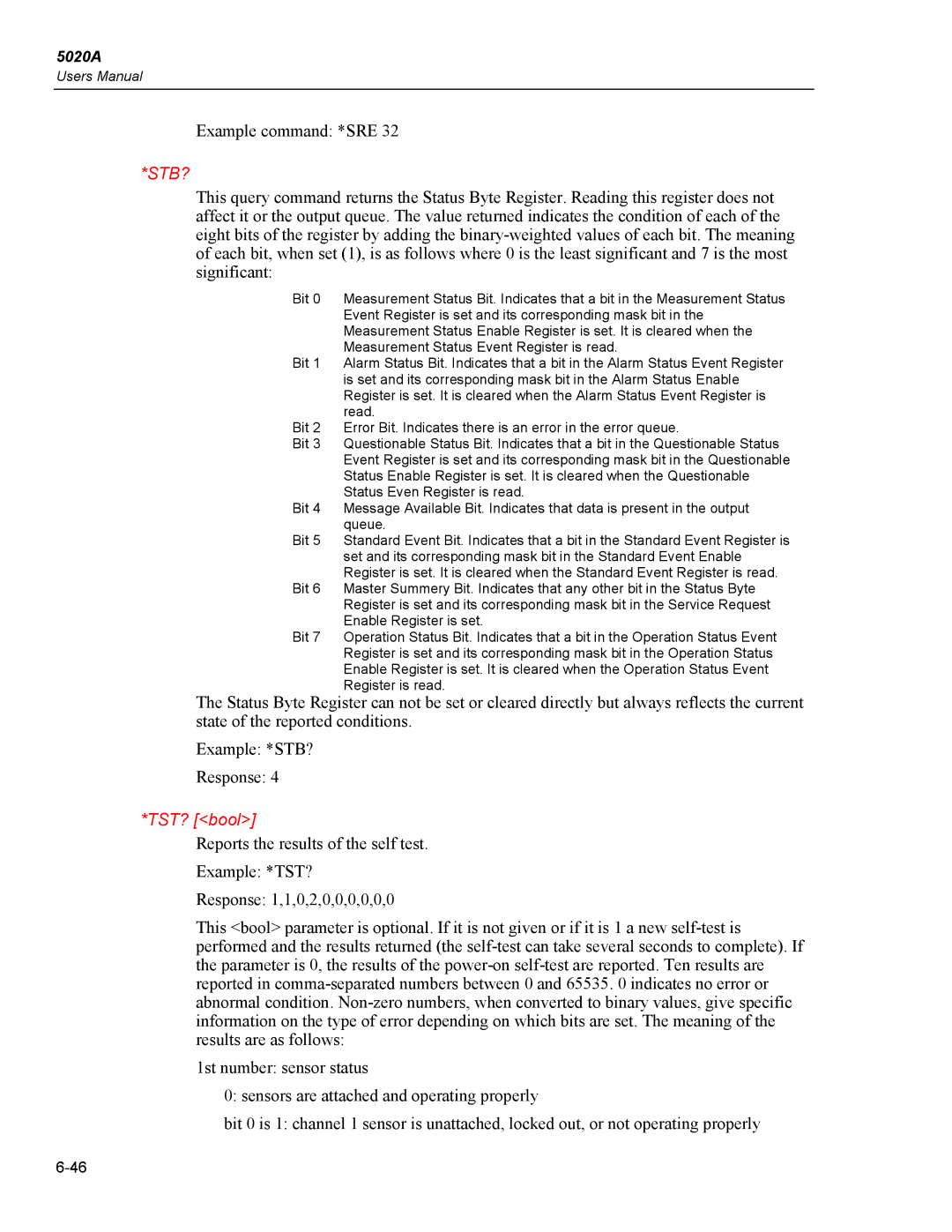5020A
Users Manual
Example command: *SRE 32
*STB?
This query command returns the Status Byte Register. Reading this register does not affect it or the output queue. The value returned indicates the condition of each of the eight bits of the register by adding the
Bit 0 Measurement Status Bit. Indicates that a bit in the Measurement Status Event Register is set and its corresponding mask bit in the Measurement Status Enable Register is set. It is cleared when the Measurement Status Event Register is read.
Bit 1 Alarm Status Bit. Indicates that a bit in the Alarm Status Event Register is set and its corresponding mask bit in the Alarm Status Enable Register is set. It is cleared when the Alarm Status Event Register is read.
Bit 2 Error Bit. Indicates there is an error in the error queue.
Bit 3 Questionable Status Bit. Indicates that a bit in the Questionable Status Event Register is set and its corresponding mask bit in the Questionable Status Enable Register is set. It is cleared when the Questionable Status Even Register is read.
Bit 4 Message Available Bit. Indicates that data is present in the output queue.
Bit 5 Standard Event Bit. Indicates that a bit in the Standard Event Register is set and its corresponding mask bit in the Standard Event Enable Register is set. It is cleared when the Standard Event Register is read.
Bit 6 Master Summery Bit. Indicates that any other bit in the Status Byte Register is set and its corresponding mask bit in the Service Request Enable Register is set.
Bit 7 Operation Status Bit. Indicates that a bit in the Operation Status Event Register is set and its corresponding mask bit in the Operation Status Enable Register is set. It is cleared when the Operation Status Event Register is read.
The Status Byte Register can not be set or cleared directly but always reflects the current state of the reported conditions.
Example: *STB?
Response: 4
*TST? [<bool>]
Reports the results of the self test. Example: *TST?
Response: 1,1,0,2,0,0,0,0,0,0
This <bool> parameter is optional. If it is not given or if it is 1 a new
1st number: sensor status
0: sensors are attached and operating properly
bit 0 is 1: channel 1 sensor is unattached, locked out, or not operating properly
